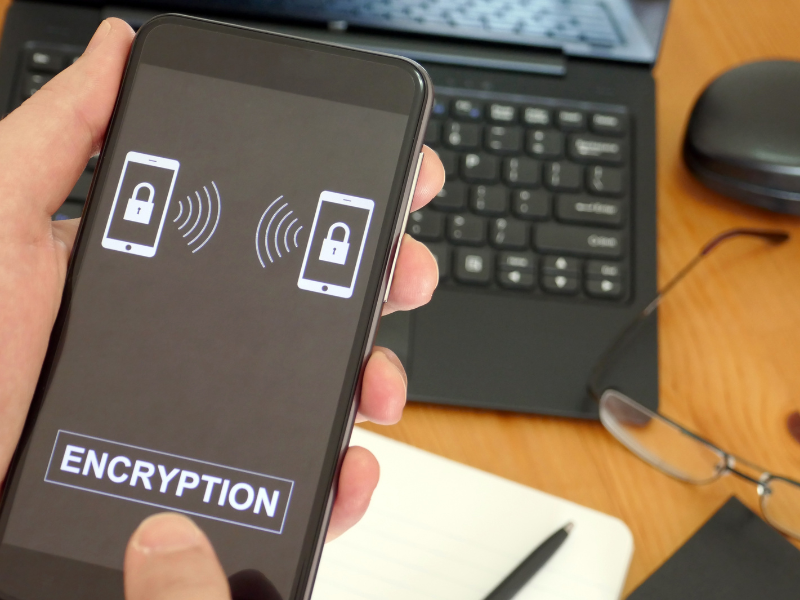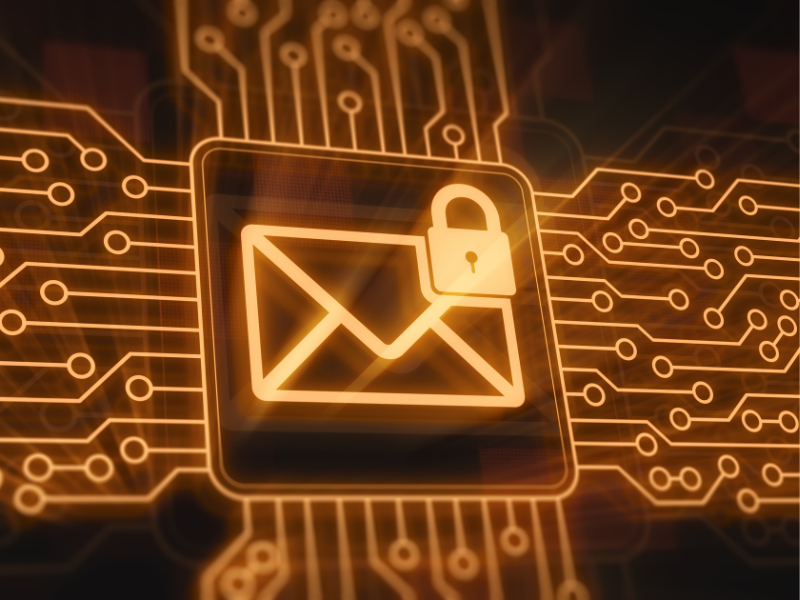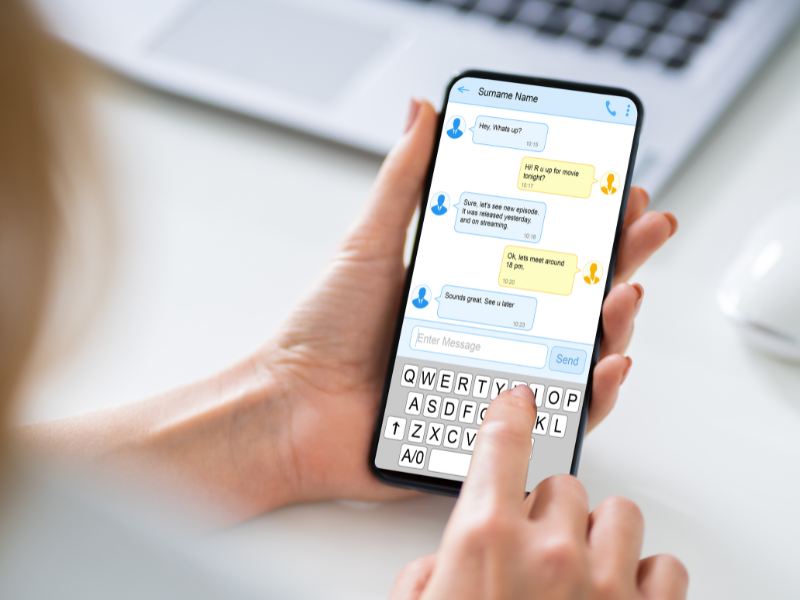Finance, insurance, and healthcare companies must prioritize implementing a secure messaging center. Data privacy regulations require a secure communication exchange if customers use your self-service portal and share documents electronically.
Here’s everything you need to consider for a secure message center.
Things to Consider When Building a Secure Messaging Hub:

1. End-to-end encryption
End-to-end encryption ensures that data remains encrypted on the sender’s device until it reaches the recipient. It ensures that only intended recipients can decrypt the messages sent through your portal.
Several end-to-end encryption methods are recognized for their strong security:
- Signal Protocol: Open-source encryption method for instant messaging, voice calls, and multimedia. It’s used by messaging apps like WhatsApp and Signal.
- PGP (Pretty Good Privacy): PGP secures email messages, sensitive files, texts, and directories. You can use PGP plug-ins to ensure the privacy of emails in Outlook and Thunderbird.
- OMEMO (OMEMO Multi-End Message and Object Encryption): An extension of the XMPP Protocol Extensible Messaging and Presence Protocol), which provides end-to-end encryption for instant messaging apps.
- Matrix: Provides a secure protocol that allows users connected to different servers to exchange messages with one another using open-source and proprietary chat and collaboration tools.
2. Authentication
Implementing authentication tools is vital to verifying user identities. Mechanisms like passwords, biometrics, and multi-factor authentication prevent unauthorized access to a secure messaging center.
3. Data encryption in transit and at rest
Data should remain encrypted as it travels between sender and receiver. It should also remain encrypted when it’s stored in digital storage, such as a hard drive. Encryption protocols like TLS/SSL (Transport Layer Security/Secure Sockets Layer) secure data in transit. Meanwhile, encryption methods that protect data at rest include Full Disk Encryption (FDE), file-level encryption (FLE), database encryption, and AES 256 encryption.
4. User access controls
A secure communication center should maintain strict access controls. This feature restricts user access based on their roles in an organization. For example, only administrators may allow or revoke access to the message center.
5. Security audits and testing
Regular security audits and penetration testing identify the weaknesses in a messaging center. These vulnerabilities should be addressed promptly to maintain system security. Several formal security audits are relevant for messaging centers, such as SOC 2 (Service Organization Control), PCI-DSS, and ISO 20071.

6. Software updates and patches
Secure messaging centers should be promptly updated and patched to avoid cyberattacks. Running software that a provider no longer supports exposes data to various security flaws. Data breaches can occur if a messaging center doesn’t update or patch its services, making it vulnerable to malicious attacks.
7. Monitoring and logging
A secure message center should have monitoring and logging features. These tools track user activities and suspicious behavior and enable timely responses in case of security incidents. Build a message center with audit logs, error logs, security event logs, message transaction logs, and other alerts and notifications for security incidents and system failures.
8. Data backups and recovery
A secure messaging center should prioritize data loss and recovery tools. In case of untoward and unexpected events such as natural disasters, fires, or cyberattacks, the portal should have the tools to recover data quickly. This ensures that customers have timely access to their data at all times.
9. Scalability
The messaging center should be able to scale as a business grows. Scalability ensures that a messaging portal remains effective and reliable as the number of users and messages increases. As traffic peaks, the messaging center should still ensure continuous data security and availability.
10. Compliance
A truly secure messaging center should comply with data privacy regulations. This is especially important for providers that handle sensitive information such as financial and health information. Build a messaging center that complies with the requirements of HIPAA and GDPR.

Keep Sensitive Data Safe With Secure Messaging
Secure messaging is essential to keep personally identifiable information and other sensitive data safe from unauthorized access. Several messaging centers offer secure features:
- Element: Provides Matrix-based end-to-end encryption and supports Bring-Your-Own-Device (BOYD) practices.
- Signal: Powered by Signal Protocol, this free instant messaging app keeps conversations secure.
- Conversations: Using OMEMO and PGP encryption, this instant messaging platform is available for Android smartphones.
However, if you need a HIPAA-compliant secure messaging center with advanced security features, use iFax. Our service also offers free Business Associate Agreement (BAA) signing, so you can confidently send and receive messages knowing your conversations remain secure.
iFax’s security and messaging features include:
- Online faxing and instant messaging
- Military-grade encryption
- Multi-factor authentication
- Fax and message confirmations
- Real-time audit logs
- Team accounts
- API integration
Get a free demo now, or select a plan.






